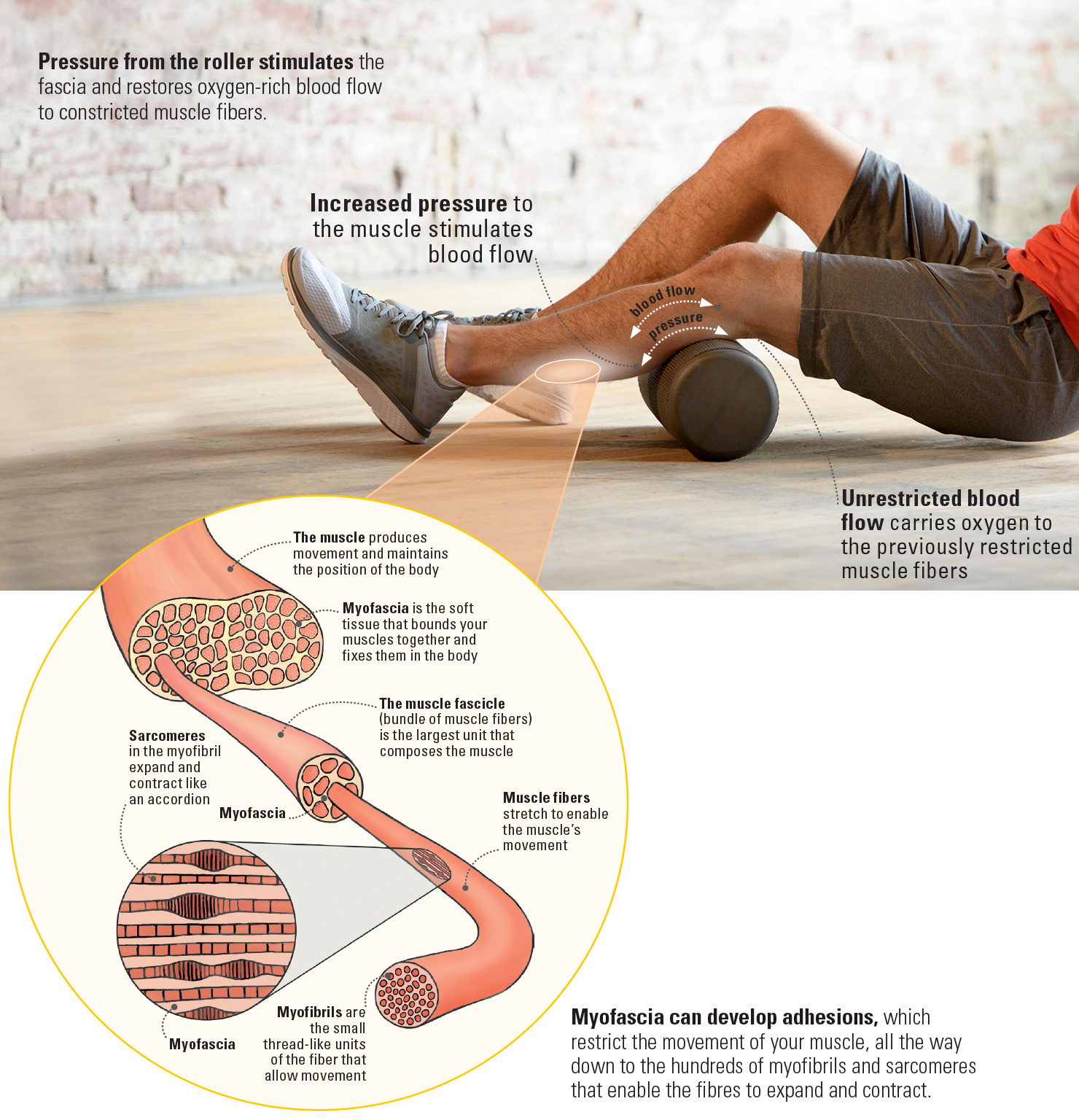Contents
Guide
CONTENTS







Introduction
Imagine your wellness as a bucket, and optimal mobility is a full vessel, the way youre designed to work. But if youre like most, your movement often feels dysfunctional and strained.
Through daily habits, you subject yourself to extremes that imbalance and weaken the muscular systemholes in the bucket. If you have poor balance, limited mobility, pain, and tightness, you can benefit from a foam roller.
For everyone from the active and agile to the sedentary and tense, rollers and other tools can counteract the negative effect of an 8-hour day sitting, a double shift on your feet, or 10 miles logged as you train. Using a foam roller increases flexibility, promotes healing after injury, improves the alignment of your spine, and heightens your body awareness.
Within this guide are 60 step-by-step exercises and 26 programs showing you how to use rolling tools to treat the side effects of your occupational or recreational activities.
Dont allow your lifestyle to sabotage your musclesuse this guide to plug the holes in your bucket as you restore your body to its healthiest, happiest, most limber state.
Why Use a Roller?
The foam roller is a multi-purpose tool that can benefit just about anyone. Rollers are effective as both deep-tissue massagers and as props to build strength and bring your body into alignment.
Rolling vs. Static Stretching
Both static stretching and foam rolling increase your range-of-motion. However, holding a static stretch too long and too often can reduce your muscles ability to contract (shorten). On the other hand, foam rolling increases the flexibility of your muscles while maintaining their healthy ability both to lengthen (stretch) and to contract.
 More Reasons to Roll
More Reasons to Roll
Its inexpensive Foam rolling requires little investment in equipment or gym memberships and trainers.
You can do it anywhere Foam rollers are lightweight and easy to store, so use them at home, at the gym, or even outside.
You can go solo You dont need the assistance of a coach or workout partnerjust yourself and some open space.
Its not just for athletes Rolling can benefit people of all abilities and lifestyles, from desk workers to stay-at-home parents.
Its versatile Although its considered a massage tool, also use it to add a challenging element to your fitness routine.
It helps you de-stress Rolling away the knots and aches helps you relax at the end of a hard day, just like a deep tissue massage.
Using a Roller for Massage
Habits and lifestyles shape your muscle use and movement, often resulting in pain and dysfunction. Using a roller and other massage tools releases tension in your bodys soft tissue and restores proper movement.
What Are Trigger Points?
Trigger points (also called knots) are small, painful spots that form in your muscle fibers. They occur when the portion of the muscle fiber that contractscalled the sarcomere becomes overworked and locked in a shortened state that restricts blood flow. Hundreds of contractions in the same spot of a muscle form a trigger point. Direct massage to a trigger point with a smaller tool (like a lacrosse ball) unlocks the sarcomeres to restore blood flow and reduce pain.
Why Your Body Needs Massage
Occupation, fitness level, and daily habits affect your bodys skeletal and neuromuscular system. These structures assimilate to your posture, so whether standing all day or sitting, your bones and soft tissues fix themselves in position. This causes muscle groups to pull on each other, with too much stress on some and not enough on others. The imbalanced system reduces your flexibility and movement quality.
Myofascia and Movement
These muscle imbalances affect your fascia, the flexible network of soft tissue that contains and connects every structure in your body. Muscles are specifically bound by myofascia . When myofascia is static, it hardens, but with mechanical stress, it is naturally more fluid. Healthy myofascia allows your muscles to slide flexibly and efficiently in your body while staying in place.
However, your myofascia thickens under stress so it can support your posture and muscle imbalances. For example, a pectoral muscle that never reaches full length develops myofascial adhesions to brace the shortened state. This causes the chest muscles to feel taut and inflexible. Hardened myofascia constricts your muscle fibers and leads to poor circulation of blood and oxygen. Restricted muscles limit range-of-motion and make your body tense.
Restoration by Rolling
Massaging your muscles with a foam roller and other tools softens your myofascia so that the structures withincontracted muscle fiberscan receive oxygenated blood. This technique is called self-myofascial release (SMR). Massaging the soft tissue breaks up adhesions and returns it to a flexible state. When you practice SMR regularly, it can restore smoothness to your fascia, improve circulation, decrease pain, and increase overall range-of-motion.
how rolling works
Just position the roller under your muscle, apply pressure with your body, and roll slowly. Tools like a massage stick or sports ball target smaller areas. The rolling tools impose mechanical stress on the myofascia, which allows the muscle fibers to properly expand and restore circulation. Self-myofascial release leaves your muscles healthier and more flexible.
more Foam roller benefits
The foam roller can act as a prop and source of feedback for strength training exercises. Exercising with a roller as a prop makes your movement more functional and improves your posture and balance.
Build Core Strength
The foam roller introduces instability to your exercises, which will intensify the engagement of your core. Working out on a stable surface can eventually become too easy; by adding a foam roller, the instability recruits the whole kinetic chain and deeper-lying muscles to maintain balance. After mastering certain exercises on a stable surface, add a roller so holding the position is more challenging. Remember to keep your lower back static and maintain a neutral spine so your exercises are safe and effective.

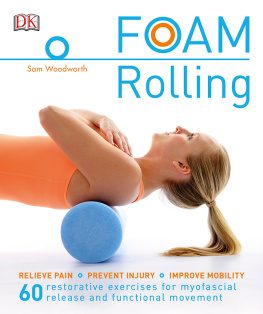

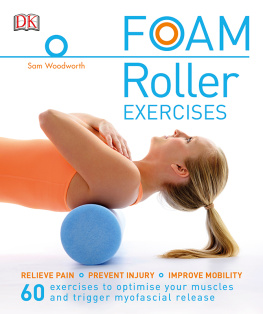
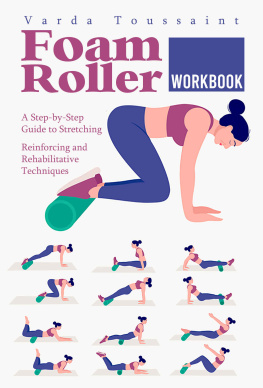
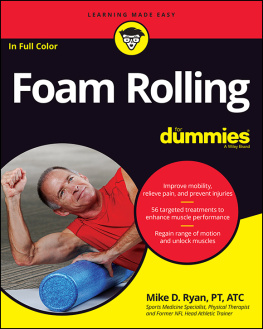
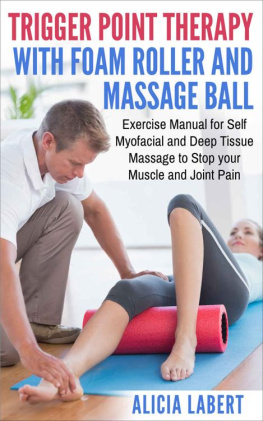

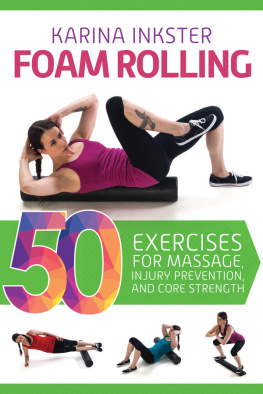
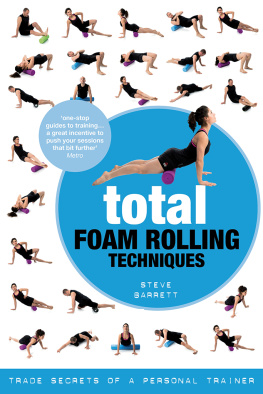











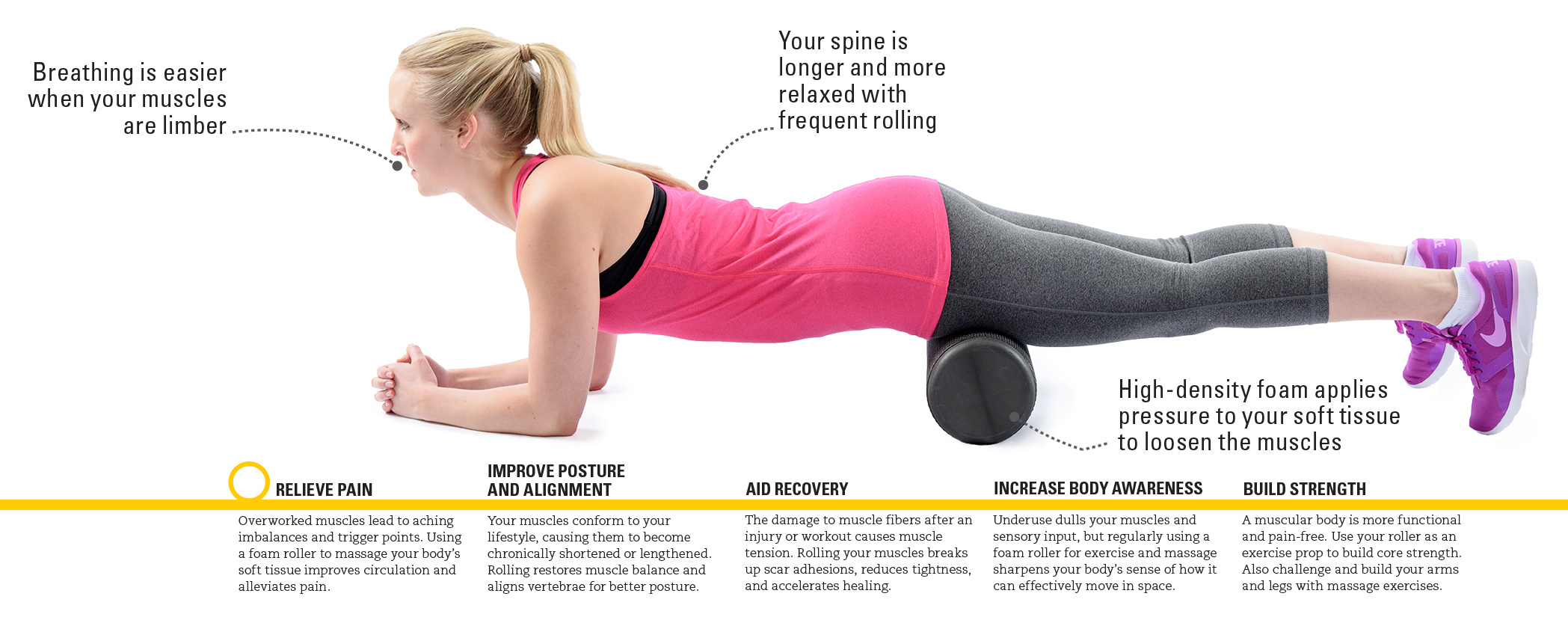
 More Reasons to Roll
More Reasons to Roll